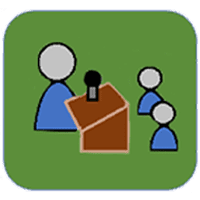Events
Arid and Semi-Arid Lands Seed Technology and Restoration Online Course
Who: This training course was developed in concert with Society for Ecological Restoration and BLM's National Training Center. It is available to restoration practitioners within the DOI and our partners. Target Audience: Natural Resource Specialists, Fire, Fuels, Emergency Stabilization and Rehabilitation, Botanists, Wildlife Biologists, Ecologists, Range, Minerals, Mining and Reclamation What: This self-paced on-line course…
Wildfire, smoke exposure, human health, and environmental justice need to be integrated into forest restoration and management
Webinar recording. Increasing wildfire size and severity across the western United States has created an environmental and social crisis that must be approached from a transdisciplinary perspective. This presentation will summarize a recently published article in Current Environmental Health Reports that details how and why scientists, planners, foresters and fire managers, fire safety, air quality,…
Western Governors’ Association Annual Meeting
Meeting website. The two-day event, hosted by Idaho Governor and WGA Chair Brad Little, featured the Western Governors and their specials guests in public conversations about western drought, cross-boundary land management, cybersecurity, clean energy, broadband deployment and telehealth expansion.
Wildfire impacts on water infrastructure
Webinar recording. Join presenter Erica Fisher for a summary of what we know so far about how structures in wildfires influence our water infrastructure and what can be done to potentially stop further contamination from wildfire events.
PNW August 2022 Drought and Climate Outlook
Webinar recording. According to the August 2, 2022 U.S. Drought Monitor, 39.5% of the Pacific Northwest Drought Early Warning System (DEWS) is in drought. A very wet spring and early summer has greatly improved conditions compared to March, when over 70% of the region was in drought. However, a large part of Oregon is still…
Climate conversations: Wildfire
Webinar recording. Climate change is increasing the frequency, severity, and extent of area burned by wildfires in the U.S., putting more people at risk of exposure to fire itself and to smoke, which can travel thousands of miles and affect the health of millions of people. A.R. "Ravi" Ravishankara (Colorado State University) will moderate a…
Post-fire logging in southern Colorado: Changes to post-fire recovery
Webinar recording. Following a wildfire, successful tree regeneration is mediated by multiple factors, from the microsite to landscape scale. This presentation demonstrates the importance of microsite conditions such as soil moisture and temperature in predicting conifer tree establishment. The speakers examined the footprint and behavior of a large 2018 wildfire in southern Colorado to understand…
An Introduction to the Fire Adapted Communities Pathways Tool
Webinar recording. Join FAC Net and Travis Paveglio as they present the new Fire Adapted Communities Pathways Tool. The Fire Adapted Communities Pathways Tool helps users identify a range of fire adaptation practices and resources that research and experience indicate are more likely to work in the places they live. Learn more about the tool…
Ecosystem Restoration 2022 – Free online course
Course website and registration link Watch the course trailer Are you interested in joining the global movement to restore our world? Do you want to become more skilled at preventing, halting, and reversing the degradation of ecosystems? Are you looking to create a national blueprint for ecosystem restoration in your country? The United Nations Development…
Vegetation type conversions in the southwestern US: Frontline observations and management responses
Webinar recording. Ecosystems of the western United States are experiencing vegetation type conversions (VTC) in response to land-use change, climate warming, and their interactive effects with wildland fire. VTC is one of the most pressing management issues in the southwestern US, yet current strategies to intervene and address change often use trial-and-error approaches devised after…





